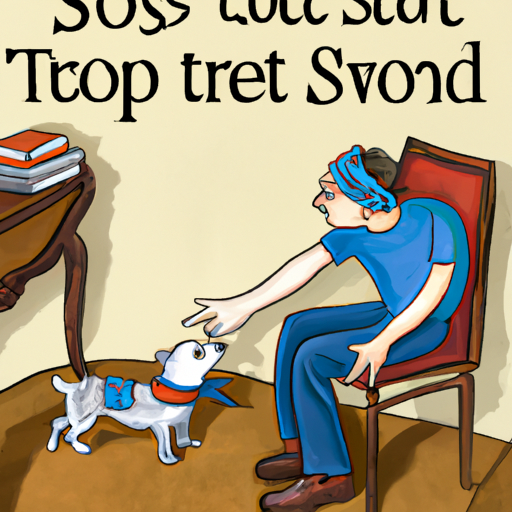If you are a small dog owner, you understand that these adorable pets can sometimes bark excessively. This can become an issue, especially in places where it’s important to maintain a certain degree of quiet. Fortunately, there are several ways you can train your small dog to stop barking excessively.
Table of Contents
- Understanding Why Dogs Bark
- Training Methods to Stop Barking
- Using Products to Help Control Barking
- When to Seek Professional Help
- Frequently Asked Questions
Key Takeaways
- Understanding why your small dog barks is the first step to controlling the behavior.
- Various training methods can curtail excessive barking.
- Products such as anti-barking collars can help control barking.
- You might need to consult a professional if the barking becomes uncontrollable.
- Patience is key when training a small dog to stop barking.
Understanding Why Dogs Bark
Before you can effectively train your small dog to stop barking, it’s important to understand why dogs bark in the first place. Barking is natural for dogs. They bark to communicate various needs and emotions such as fear, boredom, hunger, or anxiety. Some breeds are also more prone to barking than others. By understanding the root cause of the barking, you can address the issue more effectively.
Training Methods to Stop Barking
Various training methods can be used to curb excessive barking.
Positive Reinforcement
One effective method is positive reinforcement, which involves rewarding your dog when it behaves as you want. This could include giving treats, toys, or praise when the dog stops barking on command. You can learn more about positive reinforcement training methods here.
Distraction
Another method is distraction. If your dog starts to bark, distract it with a toy or play a game. This will redirect the dog’s attention away from the source of its barking.
Quiet Command
You can also teach your dog a “quiet” command. Start by saying the command when your dog is barking, and then reward it when it stops.
Using Products to Help Control Barking
If training methods alone are not effective, you might consider using different products to help control the barking. For example, anti-barking collars can be a helpful tool. These collars can emit a sound, vibration, or a mild electric shock when your dog barks, teaching it to associate barking with an unpleasant sensation.
However, it’s important to note that these collars should be used as a last resort and not as a substitute for proper training. Always ensure that any product you use is safe and humane for your pet.
When to Seek Professional Help
If your dog’s excessive barking continues despite your best efforts, it may be time to seek professional help. A professional dog trainer or a veterinary behaviorist can provide you with more targeted strategies and guidance. You can find more about when to seek professional help here.
Frequently Asked Questions
1. Why is my small dog barking excessively?
Dogs bark for various reasons such as fear, boredom, hunger, or anxiety. Some breeds are also more prone to barking than others.
2. What training methods can I use to stop my small dog from barking?
You can use methods such as positive reinforcement, distraction, or teaching a “quiet” command.
3. What products can I use to help control my small dog’s barking?
Products such as anti-barking collars can be used to help control barking. However, these should be used as a last resort and not as a substitute for proper training.
4. When should I seek professional help for my small dog’s barking?
If your dog’s excessive barking continues despite your best efforts, it may be time to seek professional help.
In conclusion, getting your small dog to stop barking is a process that requires patience and consistency. By understanding why your dog barks, using effective training methods, and considering the use of products if necessary, you can help control your dog’s barking. Remember, if you need more help, don’t hesitate to seek professional advice. For more in-depth information on dog behaviors and training, check out OneTopDog.



